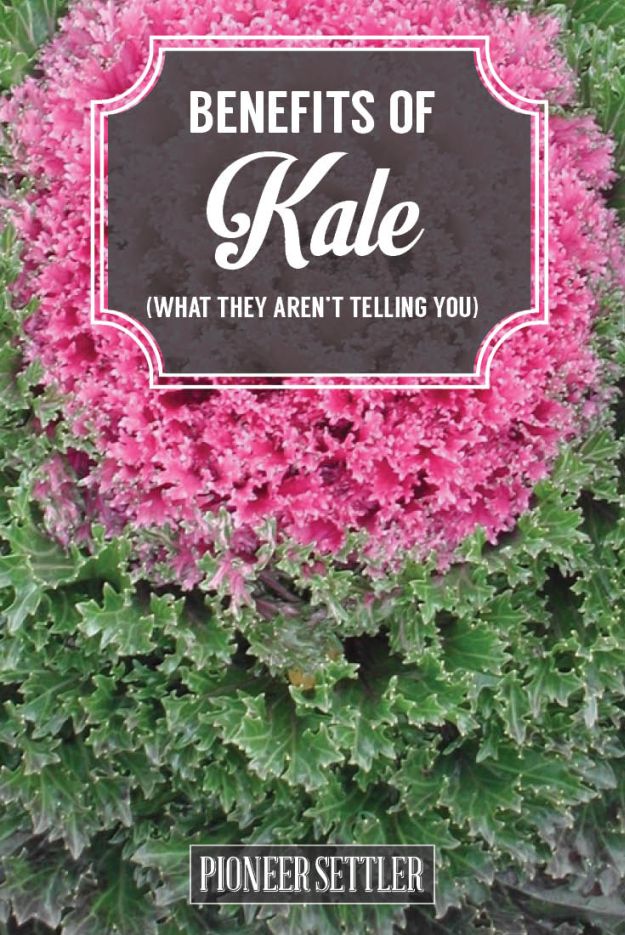This article will explain the health benefits of kale, both good and bad. Think before you eat, and make good choices.

This article was originally posted on Honey Colony, August 12, 2015. We have adopted it for Homesteading.
Read the original article here.
Is Kale Killing You??? Health Benefits of Kale – THE TRUTH
For years, kale was one of the most underused vegetables in the produce section. And then boom, it became the “queen of greens,” reaching stardom around the world. It’s packed with vitamins A, C and K as well as folic acid, lutein, fiber, and calcium. In fact, Kale is known to contain more calcium per glass than that of milk and more iron than beef. It’s also an amazing detox food and all around powerful antioxidant rich vegetable.
Kale is a wonderful source of vitamins and nutrients, it is also low in calories. That's why it ranked among the superfoods of the world!
So why the question, “Is Kale Killing You!??”
The issue with kale came up recently in Craftsmanship magazine, in a piece that profiled Ernie Hubbard, an alt-medicine researcher and molecular biologist in Marin County, California, who began to notice a trend when a number of his patients came to his office, complaining of similar symptoms.
He began doing blood tests and noticed a high level of Thallium in his patients as well as in the kale leaves from the region. Then, in 2014, by way of a 2006 published paper by Czech researchers, Hubbard discovered something else: kale — along with other “cruciferous” vegetables like cabbage, broccoli, and collard greens — was particularly good at absorbing thallium from the soil it was grown on.
With this newly discovered potential connection, Hubbard decided to dig a little deeper. So, when patients visited his clinic to complain about symptoms like fatigue, brain fog, irregular heartbeat, hair loss, digestive issues, gluten sensitivity and nausea — all commonly associated with ingesting too much thallium — Hubbard asked what kind of vegetables they typically ate.
The overwhelming answer? Crucifers — and in particular, kale.
Total coincidence — or a crucifer lover’s nightmare?
Meanwhile, others also contend that kale isn't the enemy.
“Kale isn’t the problem, pollution is,” says Nicole Granato, Nutritionist and Wellness Expert. “Our air is full of pollution and our crops are being polluted every day. The ocean is being polluted and now our seafood is suffering the effects. The more we continue to pollute our environment the more studies are going to come out showing the effect it has on our food, health, land and more.”
The discovery does bring up a series of questions. Is this a regional issue? Should we test all soil for this toxin to protect other vegetables or fruit that may be picking up traces? Have others elsewhere experienced the same thing? Clearly more research is warranted.
The quality of the soil is the key, says LA-based holistic health expert Susan Smith Jones, PhD, author of Walking on Air: Your 30-Day Inside and Out Rejuvenation Makeover. The majority of organic farms, which test their soil, likely do not have dangerous levels of thallium.
Therefore, says Smith, it’s good to find out if the farm you purchase your kale from has exposure to these things. “Or better yet, grow your own organic veggies in clean, nutrient rich soil.”
Maryam Henein is an investigative journalist, professional researcher, and producer of the award-winning documentary Vanishing of the Bees.
Related Articles:
The Benefits of Garlic
How to Dehydrate Foods to Preserve Them
23 Common Spices That Should Be In Your Pantry Now

Leave a Reply